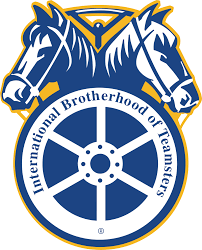New York, NY – Labor Press has confirmed that cable giant Charter Communications Inc. and IBEW Local 3 have reached “a global settlement of all outstanding issues” including outstanding court cases and unresolved matters before the National Labor Relations Board, effectively ending one of New York City’s longest strikes that upended the lives of 1,800 union workers for five years.

“We are going to put this thing to bed — this thing is basically over but I am not ready to make a public statement until I have everything nailed down, so call me next week,” said IBEW President Local 3 Chris Erikson who led the bitter five-year strike against Charter Spectrum.
In a statement emailed to Labor Press, Charter’s press office only would say “the parties have resolved their differences.”
The deal bringing an unceremonious end to the pitched labor battle was first reported by Law360 on April 26 with the headline “Union Walks Away From Striking Charter Workers” .
MORE TO TELL
In a subsequent phone call, Erikson described the Law360 headline as “disingenuous” and that on his return to New York on Monday he would schedule an interview to provide the full context of the union’s decision to cut their losses.
On April 19, both the union and the employer wrote the NRLB that they had resolved an NRLB case going back to 2014, before Charter announced its controversial purchase of Time-Warner Cable for $87.7 billion.
“The parties previously alerted the NLRB to the settlement,” reported Law360. “In an April 19 letter filed in an NLRB suit accusing Time Warner Cable of discriminating against protesting union members in 2014, the union and the company said they reached a deal resolving ‘all board-related disputes between them’ and asked the board to let them end the case. The workers involved were employees of Time Warner Cable, which Charter acquired in 2016.”
The union was also defending against a decertifying drive initiated back in 2018 by Bruce Carberry, a Charter Employee, whose LinkedIn profile lists him as a supervisor whose professional goal was “to rehire and train approximately 120 new technicians for field service installation and repair services. Using leadership to lead the way to help Charters growth and becoming the number one telecommunication [company] in the New York tristate area.”
Law 360 reported that the results of the balloting to decertify the union had “not yet been counted amid a dispute over whether certain striking and replacement workers were eligible to vote. In another letter filed with the NLRB on April 21, the parties said they settled all matters related to the decertification dispute and that the union had ‘disclaimed interest in representing the bargaining unit.’”
IN THE DARK
“We haven’t got much information from the union about what’s happening right now — but it doesn’t look too good I can tell you that,” said Troy Walcott, a veteran IBEW Local 3 shop steward and former Charter worker. Walcott, along with some of his colleagues, have established People’s Choice Communications, a community-based cooperative cable provider they believe will provide superior wi-fi access at a lower price. “We recently finished a NYCHA development in the Bronx with 300 units in it,” Walcott added.
On twitter, supporters of the striking workers were sharply critical of the union for not shedding more light on the reasoning for the decision to settle all the outstanding claims.
It was Charter’s decision to cut the cable workers’ pay after the Time Warner purchase, which sparked the 1,800 former Time Warner union technicians to go out on strike March 2017 and for the company to replace the striking workers.
The union’s vote to strike won the overwhelming support of those members that voted. But in a March 2018 interview, David Lopez, an IBEW Local 3 shop steward with 27 years, who voted ’NO’, told the LaborPress’s Joe Maniscalco, that from his vantage point the union was not prepared to successfully take on Charter.
A PROPHETIC DISSENT?
“The reason being, this company did things proactively to prepare for the strike,” Lopez said. “They hired a lot of people that had been contractors and previously crossed the picket line. They hired a company from Pennsylvania to do things at our plant to supposedly optimize it and help us know how to do it, I saw this as a way for these contractors from out of state, non-union contractors, to get familiar with our system.”
Lopez continued. “The union also did not do a lo things to fortify their relationship with the workers. There were a lot of people who had a certain sentiment of, well, I don’t even know my shop steward.”
Around the country, Charter/Spectrum has more than 90,000 employees, but only about 2,500 are represented by a union. The effort by Local 3 to hang on took on national significance for the labor movement, which since President Ronald Reagan’s mass firing of union air traffic controllers in the early 1980’s had shrunk from 20-percent of the workforce to just 10-percent, with the private workforce down to just six percent.
Back in 2017, several thousand union members staged a rally for the beleaguered Local 3 in New York City. The AFL-CIO’s then national president, Richard Trumka, was on hand and said that IBEW Local 3’s fight against Charter/Spectrum had become a national focal point for the broader labor movement.
“This is a very profitable company trying to take away from employees and workers from every sector [represented] here today,” Trumka said. “We have workers from as far away as New Orleans, who came here today to say enough is enough. These brothers and sisters of Local 3 have earned a fair share of what they produce, and it is time that this company came to the table and negotiated a fair deal with them.”
BIG GETS BIGGER
At the time of the Time Warner deal, Charter/Spectrum was already the nation’s fastest growing cable provider, serving 25 million households spread out across 41 states. With the New York City deal, it got control of NY1, the city’s dominant 24/7 cable news outlet.
The architect of Charter/Spectrum’s meteoric ascendancy from bankruptcy in 2009, to near national monopoly in many parts of the country, was Tom Rutledge. In 2016, he was awarded $100 million in compensation, mostly in stock options, which could make him (depending on which list you prefer) the highest-paid CEO in the United States
In March 2016, a large coalition of social justice, consumer groups and internet-access advocacy nonprofits urged the Federal Communications Commission (FCC) to reject the Charter/Time-Warner acquisition which they described as a “disastrous” deal. The groups included Common Cause, MoveOn.org, Media Alliance and the Free Press.
“As Internet access becomes increasingly indispensable for engaging in our 21st-century economy and democracy, further consolidation of cable providers does not serve the public interest,” the coalition wrote. “The transaction would result in the new Charter/Spectrum nearly equaling Comcast’s current size, and would create a national broadband duopoly. These two companies would control nearly two-thirds of the nation’s high-speed broadband subscribers, and would offer service to almost 80 percent of the country.”
The critique continued. “People in roughly 60 percent of Charter/Spectrum’s vastly expanded territory would have no other realistic option but Charter/Spectrum for bundled high-speed Internet and video services.”
CORPORATE DEBT SQUEEZE PLAY
The coalition warned that the billions in debt that Charter/Spectrum was taking on to increase market share would have serious consequences. “This additional debt burden of $1,142 for each customer would saddle the newly combined entity with an incredible $66 billion in debt. To repay that, and to satisfy its investors, the new Charter/Spectrum would have to raise its prices substantially — squeezing captive customers and forcing some offline.”
The letter continued, “As a recent Pew Research Center report found, broadband adoption rates are dropping, particularly for low-income households and communities of color. The main reason for this decline is high prices, which force people in marginalized communities to choose between paying for broadband and other necessities. If this transaction were approved, cities like Los Angeles, New York City, Dallas and Cleveland would see Black and Latino households and low-income families take the hardest hit from rate hikes.”
This week in Albany, advocates said out-of-date antitrust laws designed to protect the public from abuse by corporate monopolies needed to be updated with the passage of the 21st Century Antitrust Act, currently stuck in the state legislature..
At the rally, boosters of the update of the state’s antitrust laws said Charter’s takeover of Time-Warner would have gotten more scrutiny for its potential negative consequences on consumers and workers.
In a newly-issued report from New Yorkers for a Fair Economy [NYFE], the non-profit found antitrust laws, unchanged since passage of the Donnelly Act in 1893, had greatly facilitated Charter’s absorbing of Time Warner and its ability to further consolidate its increasing dominance of a vital utility.
“It was allowed after Charter made several promises to regulators at the Federal Communications Commission, including a promise not to place data caps on customers for seven years – in other words agreeing not to ‘charge customers more if their internet use’ exceeded certain levels until mid-2023,” the NYFE report says. “The company went on to request that those conditions be dropped two years early. Shortly after the merger, the company also began an attempt to ‘replace its union health insurance and pension plans with a company-run 401(k) pension account and health plan,’ and proceeded to crackdown on its unionized workforce represented by IBEW Local 3.”
“Finally, the bill institutes a state-level merger review in New York, giving the attorney general critical powers to assess mergers and potentially block them if they will result in harms to workers, including layoffs,” according to the NYFE analysis. “Too many mergers in recent years, in New York and across the country, have been approved based on the vague and often illusory promise of consumer benefits, while workers pay the very real price of seeing their jobs eliminated in the name of ‘efficiency.’ As mentioned in the earlier example, the harmful effects of the Charter-Time Warner merger could have been avoided.”
NYFE is a statewide coalition consisting of labor advocates, community organizations, small businesses and elected officials. The legislation is sponsored by Senate Deputy Michael Gianaris and Assemblymember Jeffrey Dinowitz.







1 thought on “Union Gives Up on Epic Charter/Spectrum Strike”
How do we get our cut from local 3